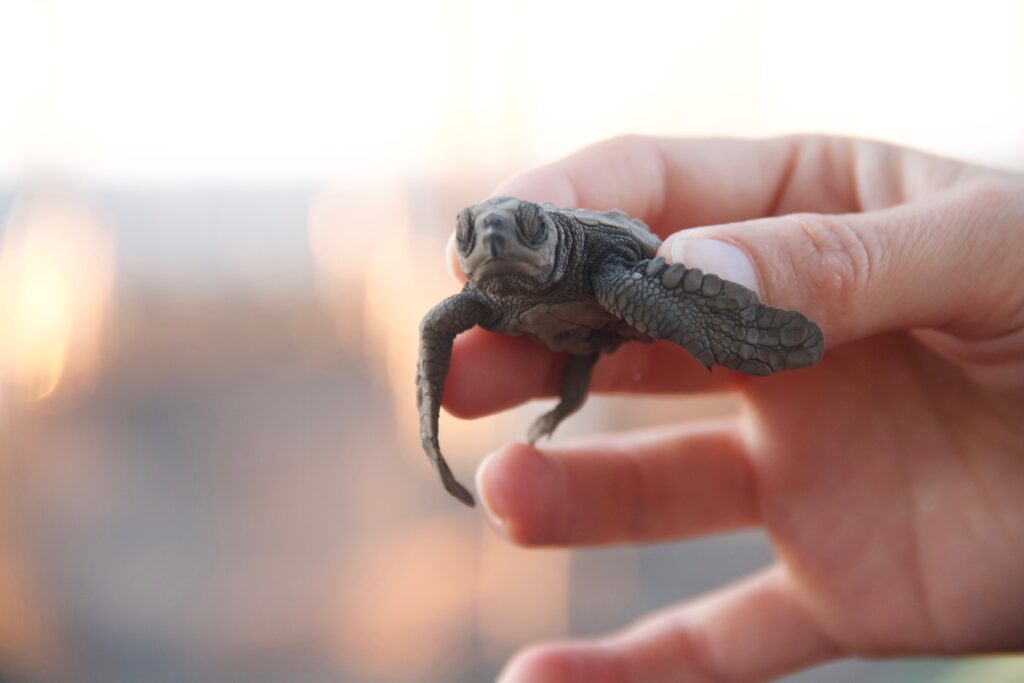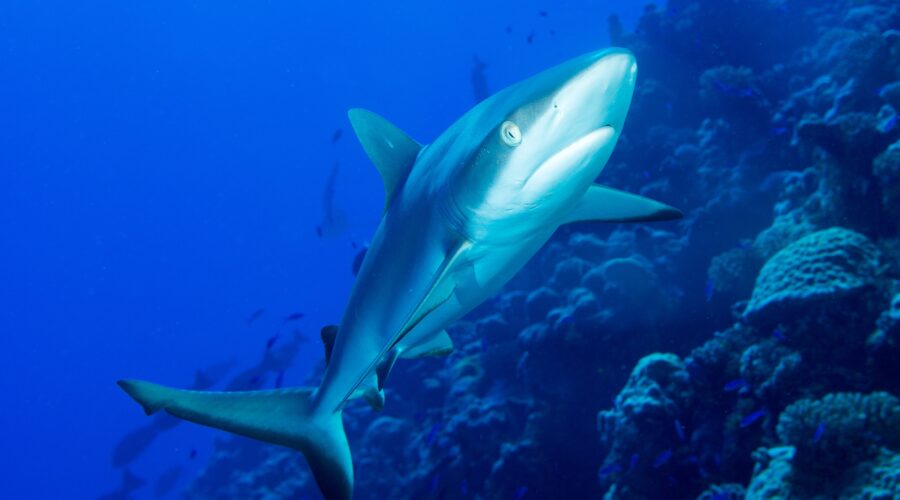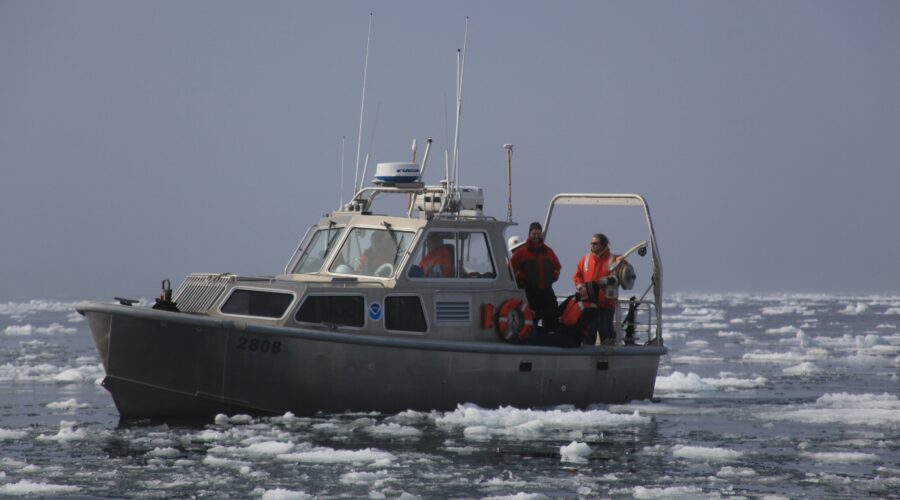Grantmaking
For nearly twenty years now, we have strived to bridge the gap between philanthropy – which has historically given the ocean only 7% of environmental grantmaking, and ultimately, less than 1% of all philanthropy – with the communities that need this funding for marine science and conservation the most. However, the ocean covers 71% of the planet. That doesn’t add up. The Ocean Foundation (TOF) was founded to help change that calculus.
Our Premise
We practice philanthropy, to carefully transfer financial support from donors to our grantees, and to put boundaries of reason on our own personal conduct. Foundation officers are the guardians of our donors. As the gatekeepers, we are responsible to safeguard the donors against fraud, but also to act as real stewards of this ocean planet, its creatures, great and small, including humankind who depend on the coasts and ocean. This is not an airy or overly ambitious concept, but is a never-ending task from which we of philanthropy can neither abdicate nor shrink.
We always remember the grantees are the ones doing the work on the water AND, at the same time, feeding their families and putting a roof over their head.

Our Philosophy
We identify key threats to the coasts and ocean and apply a broad solutions oriented focus to address threats. This framework guides both our own initiatives and our external grantmaking.
We support projects and organizations that advance the field of marine conservation and invest in individuals and organizations with a unique, promising ability to address those threats. To identify potential grantees, we use a combination of objective and subjective evaluation methods.
We support multi-year giving whenever possible. Conserving the ocean is complicated and requires a long-term approach. We invest in individuals and organizations so that they can spend time on implementation, rather than on waiting for the next grant.
We practice “engaged, active philanthropy” to work with grantees as collaborative partners to improve effectiveness. We do not just give away money; we also serve as a resource, giving direction, focus, strategy, research and other advice and services as appropriate.
We foster coalition building and individuals and organizations that pursue their unique work within context of existing and emerging coalitions. For example, as a signatory to the Climate Strong Islands Declaration, we seek to support projects and organizations that increase technical support available to island communities to develop new initiatives, programs, and projects that help them respond effectively to the growing climate crisis and other environmental challenges.
We recognize the need to promote ocean conservation at the local and regional level in many other parts of the world, and thus, more than 50 percent of our grantmaking is to support projects outside the USA. We strongly support science diplomacy, as well as cross-cultural and international knowledge sharing, capacity-building and the transfer of marine technology.
We strive to build and increase the capacity and effectiveness of the marine conservation community, in particular with those grantees who demonstrate a commitment to Diversity, Equity, Inclusion and Justice in their proposals. We’re incorporating a Diversity, Equity, Inclusion, Accessibility and Justice lens into all facets of our conservation work to ensure our work promotes equitable practices, supports those who share similar values, and helps others embed those values in their work and we want to continue this practice through our philanthropy.
Our average grant size is approximately $10,000 and we encourage applicants to demonstrate a diverse funding portfolio if possible.
We do not support grants to religious organizations or for election campaigns.
General Grantmaking
The Ocean Foundation offers both direct grants from our own funds and grantmaking services for individual, corporate and government donors, or for outside organizations seeking institutional support capacity.
As an international community foundation, TOF raises every dollar it spends. Grantmaking funds may come from (1) general unrestricted donations, (2) funder collaboratives–a related type of pooled fund which has a more structured governance mechanism, and/or (3) Donor Advised Funds.
Letters of Inquiry are reviewed by our committee once per quarter. Applicants will be notified of any invitation to submit a full proposal via email. For each potential grantee, TOF undertakes detailed due diligence services, preliminary vetting, issues grant agreements, and administers all required grant reporting.
Request for proposals
All of our grantmaking is inherently donor-driven, therefore we do not maintain a generic open request for proposals, and instead we only solicit proposals for which we already have an interested donor in mind. While many of the individual funds we host accept solicitations by invitation only, some of them do on occasion have open RFPs. Open RFPs will be publicized on our website and advertised throughout marine and conservation community email newsletters.
LETTERS OF INQUIRY
While we do not accept unsolicited funding requests, we understand that many organizations are doing great work that might not be in the public eye. We always appreciate the opportunity to learn more about the people and projects working to conserve and protect our planet’s precious coasts and ocean. TOF accepts Letters of Inquiry on a rolling basis via email at [email protected]. Please do not call, or mail hard copy Letters of Inquiry to the office.
Letters are kept on file for reference and are reviewed regularly as funds become available or as we interact with donors who have a specific interest in a topical area. We are always seeking new revenue streams and engaging in discussions with new potential donors. All inquiries will receive a response on whether funds are available. If we do come across a funding source that is a good fit for your project, we will contact you to possibly solicit a full proposal at that time. The Ocean Foundation’s policy is to limit indirect costs to no more than 15% for your budgeting purposes.
DONOR ADVISED GRANTMAKING
TOF houses a number of Donor Advised Funds, where an individual or group of donors play a role in selecting grantees aligned with their donor intent. In addition to working closely with individual donors, TOF provides due diligence, vetting, grant agreements, and reporting services.
Please contact Jason Donofrio at [email protected] for more information.
INSTITUTIONAL SUPPORT SERVICES
TOF’s institutional support capacity is for outside organizations who may be less able to process outgoing grants in a timely manner, or who may not have the staff expertise in-house. It allows us to provide detailed due diligence services, preliminary vetting of potential grantees and administer grant agreements and reporting.
TOF also follows accessibility and best practice guidelines for our website and all Request for Proposals, grant application and reporting documentation.
For information on institutional support or capacity services, please email [email protected].
As TOF expands its grantmaking to include support for organizations furthering Diversity, Equity, Inclusion, and Justice (DEIJ) efforts, grants were awarded to Black In Marine Science and SurfearNEGRA.
Black In Marine Science (BIMS) aims to celebrate Black marine scientists, spread environmental awareness, and inspire the next generation of scientific thought leaders. TOF’s $2,000 grant to BIMS will help to maintain the group’s YouTube channel, where it shares conversations on pressing ocean topics with Black scientists. The group provides honorariums to each individual that contributes a video.
SurfearNEGRA strives to “diversify the lineup” of surfing girls. This organization will use its $2,500 grant to support its 100 Girls! Program, which provides funding for girls of color to attend surf camp in their local communities. This grant will help the group reach its goal of sending 100 girls to surf camp—that’s 100 more girls to understand both the thrill and peace of the ocean. This grant will support the participation of seven girls.
Past Grantees
For previous years’ grantees, click below:
Fiscal Year 2022
The Ocean Foundation (TOF) awards grants in four categories: Conserving Marine Habitats and Special Places, Protecting Species of Concern, Building the Capacity of the Marine Conservation Community, and Expanding Ocean Literacy and Awareness. The funding for these grants originate from TOF’s Core Programs and Donor and Committee Advised Funds. In its fiscal year 2022, we awarded $1,199,832.22 to 59 organizations and individuals around the world.
Conserving Marine Habitats and Special Places
$767,820
Protecting Species of Concern
$107,621.13
Building the Capacity of the Marine Conservation Community
$315,728.72
Expanding Ocean Literacy and Awareness
$8,662.37


Grantee Spotlight
$6,300 to Save The Med (STM)
The Ocean Foundation is proud to support Save The Med (STM). Awarded through us by the Troper-Wojcicki Foundation in support of Boris Nowalski’s swim across the Menorca Channel, we’re helping initiatives that fall under the umbrella of Save The Med’s project, “A Network for Marine Protected Areas” in the Balearic Islands. Through this project, STM identifies optimal MPA sites, collects survey data, develops science-based proposals for the creation and management of MPAs and engages local communities and stakeholders in educational and marine custody initiatives for the lasting protection of the MPAs.
$19,439 to Dr. Andrey Vinnikov
We are happy to provide funds to help Dr. Andrey Vinnikov gather and analyze available scientific materials about the distribution and amount of macrobenthos and megabenthos in the Chukchi and the northern Bering Seas, to identify potential Vulnerable Marine Ecosystems. This project will focus on key species of bottom-dwelling invertebrates that are most vulnerable to the impact of bottom trawling. Determining the region’s Vulnerable Marine Ecosystems will help inform approaches to reduce negative factors on seafloor ecosystems. This will especially work to protect them from bottom trawling as commercial fishing within Russia’s Exclusive Economic Zone expands into the Arctic. This grant was made through our Eurasian Conservation Fund CAF.



